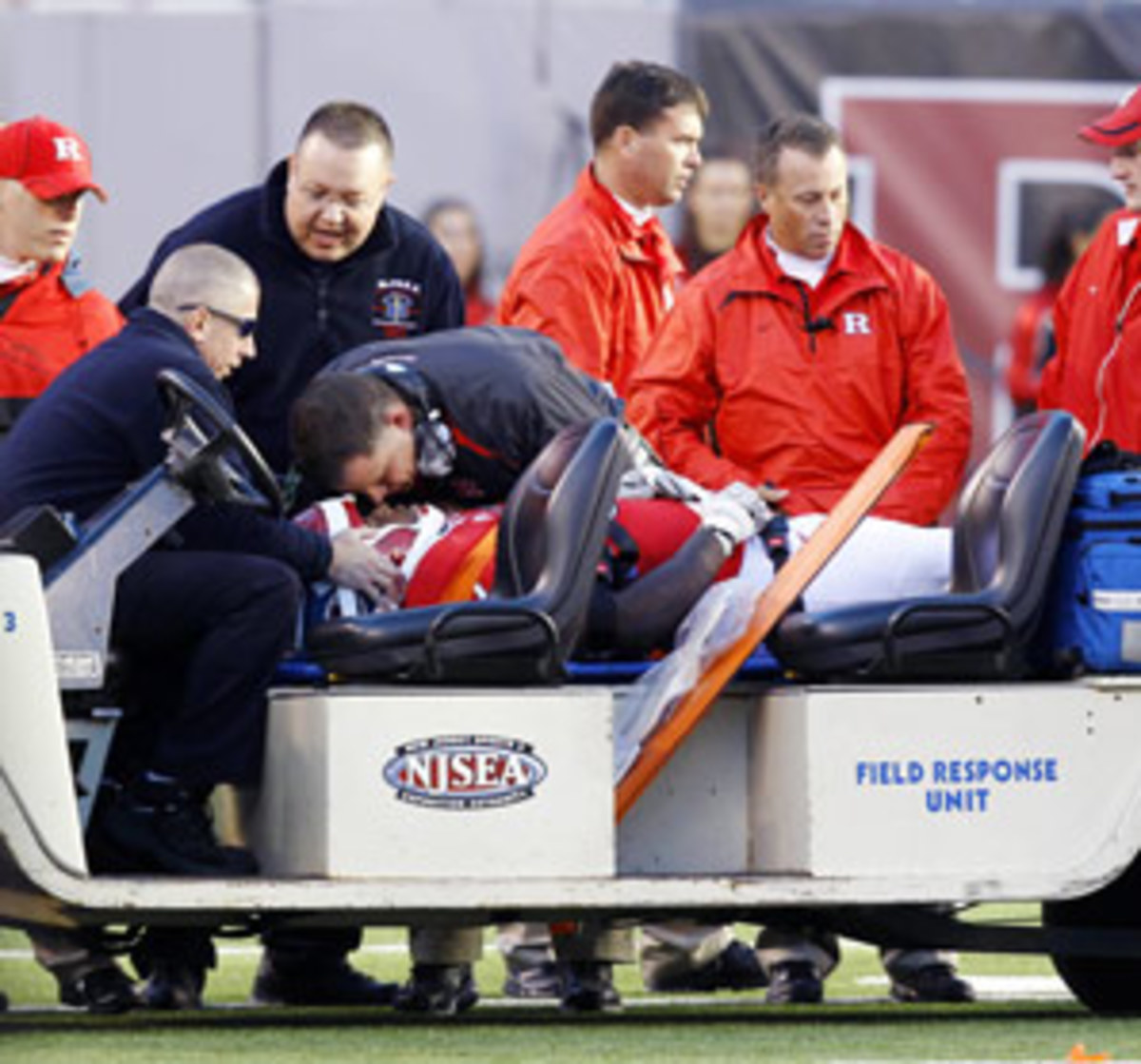In wake of news, harsh realities of sports are no laughing matter
Tom Bosley died Tuesday, which got me to thinking about the athletic innocence of the greatest television show of all time.
On Happy Days, nobody took steroids or bet on games or talked trash. Nobody was illegally recruited or banned for poor behavior. In one of my favorite episodes, Richie Cunningham, a benchwarmer for the Jefferson High boys' basketball team, is inserted into a playoff game against Oshkosh High when the star is hurt. "Don't shoot the ball," Cunningham is told by the coach -- and, of course, he shoots the ball and scores the winning basket.
Then, in the follow-up game against Fillmore High, he misses a free throw with one second remaining. Jefferson High loses and Richie is transformed into the Steve Bartman of his day. Afterward, when the gym empties, Richie's dad (played by the wonderful Bosley) lifts his son's spirits with the everything-is-OK talk that always -- always -- works on TV. He hands him a red Life Saver, and the world keeps spinning.
In the wake of Bosley's passing, I find myself wishing that the modern sports landscape looked less like the mess that we currently find ourselves in and more like 1950s fictional Milwaukee. Sadly, that's an impossible dream.
In case you missed it, last Saturday Eric LeGrand, a 20-year-old junior defensive tackle for Rutgers University, was paralyzed from the neck down after his helmet collided with the shoulder of an Army kick returner. At this moment, we know little of LeGrand's long-term prognosis, save for the fact that it's not very good. No matter how many times a Rutgers coach or player refers to LeGrand as "courageous" and "a fighter," there are few reasons to believe he will ever return to a fully normal existence. One minute you're playing Division I college football. The next, you can't move your arms or legs.
On the day after the LeGrand tragedy, we were allowed to glimpse inside the (jarringly insensitive) mind of James Harrison, the Steelers' star linebacker. After Harrison went out and knocked two Browns players out of the Cleveland-Pittsburgh game with Jack Tatum-esque blows, then told reporters that, "I try to hurt people."
"I don't want to see anyone injured," he elaborated. "But I'm not opposed to hurting anyone."
With LeGrand lying inside the Hackensack University Medical Center and Harrison's boneheaded sentiment speeding across the Internet, the NFL rushed to action, issuing enormous fines against three of its players for flagrant hits (Harrison led the way with a $75,000, New England's Brandon Meriweather and Atlanta's Dunta Robinson were each fined $50,000) and announcing that it's considering immediate suspensions for those who deliver such shots.
The news brought the standard cheers and jeers from football loyalists, but really only served to highlight the obvious -- that when it comes to its image, the NFL acts fast. Where, after all, is the concern for the physical well-being of the players when Roger Goodell and the owners talk up the inevitability of the body-destroying 18-game season? Where is the concern for the hundreds upon hundreds of mentally and physically damaged ex-players who fight tooth and nail for the retirement benefits they so desperately deserve? If the NFL were truly dedicated to health and safety, why would it assign so few employees to study the long-term risks of shots to the head?
On Happy Days, everything worked out swimmingly. The Fonz became a teacher at George S. Patton Vocational High and adopted an orphan. Joanie and Chachi got married in the Cunninghams' back yard. Richie followed his dream and moved to Hollywood.
Life, however, isn't a sitcom.
There is precious little to laugh about.






